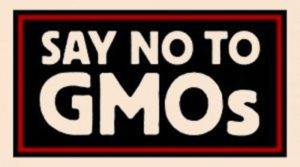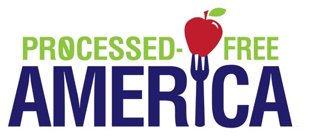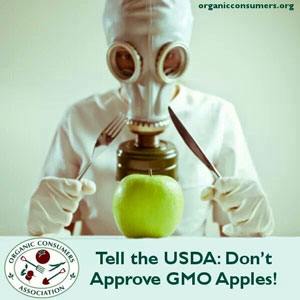
Part 3: How To Detect Hidden GMO’s
If you’re eating processed foods, it’s a sure bet that you’re eating food with genetically modified ingredients. But even if you’re eating foods from the health food store or from restaurants that tout healthy fare, you have to be careful. There are many additives, preservatives, and other chemical ingredients that derive from GM foods. This article will wake you up to just how prevalent GMO’s are in our food supply.
How Sweet It Isn’t
You may already know that the artificial sweetener aspartame, referred to as Nutrasweet® and Equal‚®, is one of the most harmful chemical additives to date. Seventy-five percent of complaints to the FDA about food reactions pertain to NutraSweet. The FDA once listed 92 different symptoms associated with the use of NutraSweet. Symptoms confirmed through controlled studies include headaches/migraines, weight gain, dizziness, confusion, memory loss, drowsiness, depression, irritability, anxiety attacks, tingling and numbness, convulsions, heart palpitations, shortness of breath, chest pain, nausea, diarrhea, aggravation of diabetes, menstrual problems, joint pain, decreased vision, eye pain, ear ringing, noise intolerance, hyperactivity in children, and excessive thirst.
The sweetener aspartame is derived from GM microorganisms, and is now found in over 6,000 products, including many sugar-free foods, soft drinks, gum, candy, desserts, yogurt, tabletop sweeteners, and some pharmaceuticals such as vitamins and sugar-free cough drops.
GM aspartame is not only used in food, per se, but is also used in pharmaceutical products. You might be surprised by the number of products that contain aspartame. It shows up in children’s chewable vitamins, children’s chewable non-aspirin, sugar-free Metamucil, Tylenol, Dimetap Cold and Allergy chewables, and fiber supplements such as Mylanta, Naturalax and Lifeline Naturals. GM aspartame is not usually listed on the outside of the package but in the small print on the slip of paper inside the package. If you find a product you bought contains this GM ingredient return it to the store and insist on getting your money back or a substitute that does not contain GM aspartame.
If you want a sweet treat that doesn’t contain aspartame, high fructose corn syrup or beet sugar (both of these also derive from GM foods), you should look for those sweetened with honey, raw cane sugar, or pure maple syrup.
Vegetarians Beware
Many alternative meat products and dairy products are processed and include ingredients that may be genetically engineered, so pay close attention to the ingredient lists to avoid the Big Four at-risk ingredients, especially soy. You might be surprised to find that some of your favorite vegetarian foods contain GMO ingredients.
Non-GMO brands of meat alternatives include: 365 Brand (Whole Foods), Amy’s, Sunshine Burger, Vitasoy, Wildwood, and White Wave.
Non-GMO brands of dairy alternatives include: Edensoy, Imagaine Foods/Soy Dream, Nancy’s Cultured Soy, Pacific Soy, Silk, Soy Delicious, Sun-Soy, Stonyfield Farms O’Soy, Tofutti, Vitasoy/Nasoya, WestSoy, and WholeSoy.
May Contain GMO Ingredients, meat alternatives: Boca (unless labeled organic), Gardenburger, Morningstar Farms, and Morningstar Farms Natural Touch (unless labeled organic).
May Contain GMO Ingredients, dairy alternatives: 8th Continent
Baby Foods and Infant Formula
There is nothing more scary than feeding an infant GMO foods, yet milk or soy protein is the basis of most infant formulas. The secret ingredients in these products are often soy or milk from cows injected with rbGH. Many brands also add GMO derived corn syrup and corn syrup solids. Be sure you feed your infants only those brands of baby food and formulas that are non-GMO.
Non-GMO brands of baby foods and infant formulas include: Baby’s Only (certified organic products), Earth’s Best, Gerber products, HAPPYBABY, Mom Made Meals, Organic Baby, and Plum Organics.
May Contain GMO Ingredients, baby foods and infant formulas include: Beech-Nut, Enfamil, Good Start, Nestle©, and Similac/Isomil.
Sodas, Juices, and Other Sweetened Beverages
Most juices are made from non-GMO fruit (avoid papaya though, because if it comes from Hawaii, it could be GMO). However, many juices are sweetened with corn-based sweeteners, such as corn syrup and high fructose corn syrup, which derive from GMO corn. Many sodas are primarily comprised of water and corn syrup. If you want to avoid juices containing GMO’s, look for 100-percent fruit juices.
Non-GMO brands of beverages include: After the Fall organic juices, Blue Sky, Cascadian Farm, Eden, Odwalla, Organic Valley, R.W. Knudsen organic juices and spritzers, Santa Cruz Organic, and Teeccino Herbal Coffee.
May Contain GMO Ingredients: Coca-Cola (Minute Maid, Hi-C, NESTEA), Hansen Beverage Company, Hawaiian Punch, Country Time, Kool-Aid, Crystal Light, Capri Sun, Tang, Ocean Spray, Pepsi (Tropicana, Frappuccino, SoBe, Dole), and Sunny Delight.
Cereals and Breakfast Foods
Cereals and breakfast bars of all kinds are very likely to contain GMO ingredients, mainly because they are often made with corn and soy products. Most breakfast foods will also contain a GMO sweetener.
Non-GMO brands of breakfast foods include: Barbara’s (organic line), Cascadian Farms, Eden, EnviroKidz, Health Valley (organic line),Lundberg® Purely Organic Rice Cereal, and Nature’s Path.
May Contain GMO Ingredients, Cereals and Breakfast Bars: General Mills, Kellog, Post, and Quaker
Grains, Beans, and Pastas
Other than corn, no GM grains are sold on the market. You should look for 100-percent whole-grain pastas, cous cous, rice, quinoa, oats, barley, sorghum, and dried beans (except soybeans). However some packaged meals containing grains and pastas may also contain GMO ingredients in the sauces or seasoning packets.
Non-GMO brands of grains, beans, pasta and packaged meals include: Annie’s Natural Pasta and Annie’s Homegrown certified organic macaroni & cheese, Bob’s Red Mill (organic line), Eden certified organic grains, Kamut, Lundberg Family Farms, Sunridge Farms, Vita-Spelt pastas, Amy’s, Casbah, Dr, McDougall’s Right Foods, Fantastic Foods, Lotus Foods, Organic Planet, and Seeds of Change certified organic boxed meals.
May Contain GMO Ingredients, Packaged Meals containing grains and pastas: Betty Crocker meals (General Mills), Knorr, Kraft Macaroni & Cheese meals, Lipton meal packets, Near East, Pasta Roni and Rice-A-Roni meals.
Frozen Foods
Many frozen foods are highly processed. You can be almost certain that you will find one or more of the Big Four at-risk ingredients in these foods: corn, soy, canola, and cottonseed. Stay away from foods that contain them, unless they are labeled organic or non-GMO.
Non-GMO brands of frozen foods include: Amy’s Kitchen, Cascadian Farms Organic Frozen meals and vegetables, Cedarlane, Ian’s Natural Foods, Linda McCartney frozen meals, Mom Made Meals, and Plum Organic Kids.
May Contain GMO Ingredients, frozen foods: Boca (unless labeled organic), Celeste, Eggo Waffles, Gardenburger, Green Giant frozen meals, Healthy Choice, Kid’s Cuisine, Lean Cuisine, Marie Callendar’s, Morningstar Farms (unless labeled organic), Stouffer’s, Swanson, and Tombstone.
Condiments, Oils, Dressings, and Spreads
Unless they are specifically labeled, all corn, soybean, cottonseed, and canola oils probably contain GMOs. You should choose extra virgin olive oil, coconut oil, sesame oil, sunflower oil, safflower oil, almond oil, grapeseed oil, and peanut oils. Always choose oils that are unrefined and expeller pressed, to ensure they have not been processed at high heats.
As for mayonnaise, ketchup, preserves, jams, and jellies, you should always choose those that are not sweetened with corn syrup or high fructose corn syrup.
Non-GMO brands of oils and condiments include: Annie’s, Bragg’s Liquid Aminos and salad dressings, Drew’s Salad Dressing, Eden, Ian’s Natural Foods, Maranatha Nut Butters, Muir Glen organic tomato ketchup, Nasoya, Newmans Own Organic, Spectrum oils and dressings, and Wholemato.
May Contain GMO Ingredients, oils and condiments include: Crisco, Del Monte, Heinz, Kraft condiments and dressings, Mazola, Pam, Peter Pan, Skippy, Wesson, and Wish-Bone.
Protein Bars and Energy Bars
We’ve all become so reliant upon energy bars to replace a meal or for a snacks. But you should beware of those that contain GMOs. But just because a bar is non-GMO, doesn’t necessarily mean it’s good for you. You should only eat these types of bars when absolutely necessary, and not as a regular practice.
Non-GMO brands of energy bars and protein bars include: Clif Bar, Genisoy Bars, Lara Bar, Nature’s Path, Nutiva, Odwalla, Optiimum Energy Bar, Organic Food Bar, and Weil by Nature’s Path Organic.
May Contain GMO Ingredients, energy bars and protein bars include: Balance Bar, Nature Valley snack bars and granola bars, Nabisco Bars, PowerBar, and Quaker Granola Bars.
Hidden Genetically Modified Ingredients
Aside from aspartame, processed foods often have a host of other hidden GM sources. Unless they are organic or labeled as GMO, the following are just a few ingredients that may be made from GMO’s:
Baking powder (except Rumford non-aluminum baking powder)
Caramel color
Cellulose
Citric acid
Corn starch
Dextrin
Dextrose
Diacetyl
Glycerin
Hydrolyzed vegetable protein
Inositol
Invert sugar
Tamari (unless organic)
Isoflavones
Maltodextrin
Modified food starch
Monosodium glutamate (MSG)
Phenylalanine
Sorbitol
Soy isolates
Soy protein
Starch
Vegetable oil
As you can see, the American food supply is rife with GMO containing foods. In order to protect yourself and your family, you need to be educated about which foods contain them and which don’t. If you are eating a mostly organic, plant-based diet, it is easier to avoid GMO’s, but you still have to read ingredient lists and become an expert. You can download your own NON-GMO SHOPPING GUIDE, which contains much of the information in this article plus a more extensive list of GM and non-GM food products, by logging on to www.responsibletechnology.org.
Note: The brands and products listed in this article were compiled based on company statements, not on testing for GMOs. Any product labeled as Non-GMO indicates that its manufacturing process is designed to avoid GMOs, but consumers should be aware that GM contamination is possible due to natural pollen movement, weather events, seed contamination, or human error. Hence, there is no guarantee such products are 100% free of GMOs.
Sources:
The Non-GMO Shopping Guide, Institute for Responsible Technology, accessed online http://www.responsibletechnology.org

